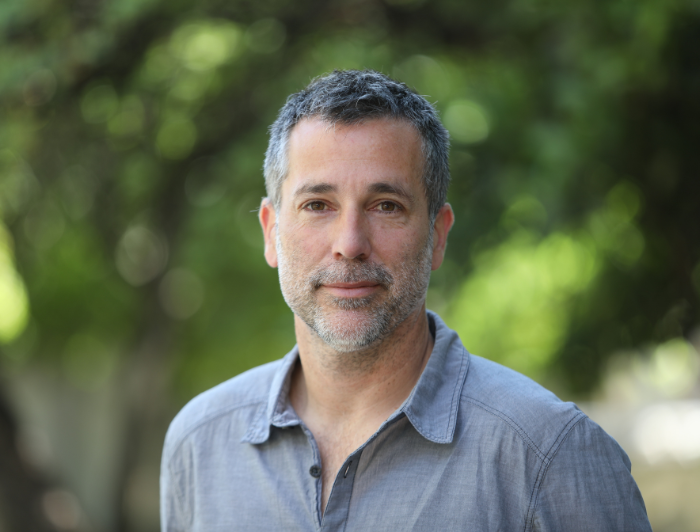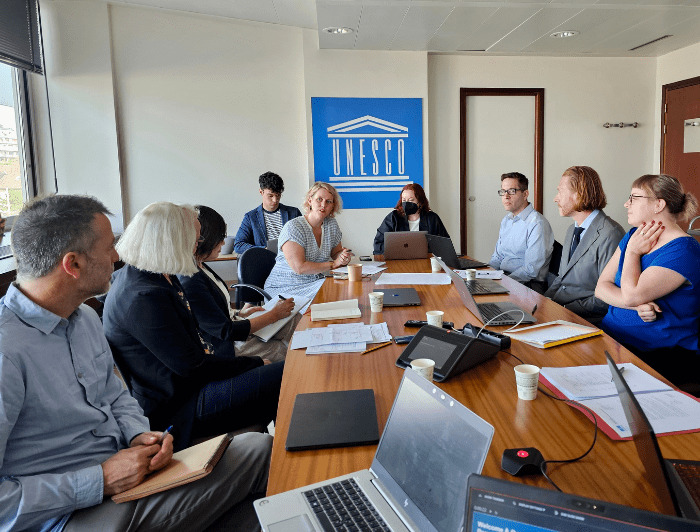UNESCO Enlists Christian Berger for Bullying Redefinition Project
The School of Psychology faculty member traveled to Paris to work on a review and update of the concept of bullying, a phenomenon that, according to UNESCO figures, affects more than 30% of students worldwide.

photo_camera Christian Berger is the current Deputy Director of Research and Postgraduate Studies at the UC Chile School of Psychology. Credits: Karina Fuenzalida.
For a considerable time, bullying, which involves the deliberate and repetitive targeting of one individual or group by another individual or group, has remained a significant concern within school environments. UNESCO statistics reveal that more than 30% of students worldwide have been victims of bullying. These figures have worsened following the pandemic, with a particular increase in cases of cyberbullying.
This is a worrisome scenario, considering that students who are frequently victims of bullying not only have problems with their academic performance but are also more likely to drop out of formal education as a result of this harassment. Statistics also suggest that they are twice as likely to experience loneliness, insomnia, and suicidal thoughts. In addition, several studies show that bullying not only impacts the victims; it also affects perpetrators and bystanders, influencing the entire school community.
UNESCO’s Efforts

In this challenge to curb violence and social coexistence issues in educational settings, UNESCO has taken on the task of reviewing and updating the concept of bullying, trying to address the complexities of this phenomenon in today's world. This is an endeavor that the entity has been engaged in since 2019, when it enlisted a panel of experts, including Professor Christian Berger of the UC Chile School of Psychology, to participate in this effort. They have also joined forces with the World Anti-Bullying Forum, developing a joint project that led them to meet at UNESCO headquarters in Paris.
“It has been four years since work began on redefining the concept of bullying because the previous definition was outdated and not suited to the phenomenon we see today. Consequently, we have been striving to formulate a definition that is shared by scholars, researchers, and policymakers in public policy decision-making", said the assistant director of UC Chile Research and Postgraduate Studies of the School of Psychology. This work will be shared at the next meeting of the World Anti-Bullying Forum, to be held in the United States in October.

According to the researcher, an expert in school coexistence, this redefinition also considers cyberbullying, which was not included in the original definition. “That wasn't in the original definition. The second important element is to move beyond an individual-focused definition and embrace a more systemic perspective. In other words, bullying should be viewed as a phenomenon occurring within an educational system rather than in isolation. It's something related to social biases, racial factors, discrimination, etc.”
The faculty member, one of the 12 experts invited by UNESCO and the sole representative from Latin America, highlighted a shift in perspective. This requires moving beyond exclusively focusing on the actions of the bullying students. “I think this is key. Instead of focusing on the perpetrators, the emphasis is directed towards the victims and the systemic conditions linked to vulnerability. It's a definition that emphasizes the protection and upholding of individuals' rights.”


